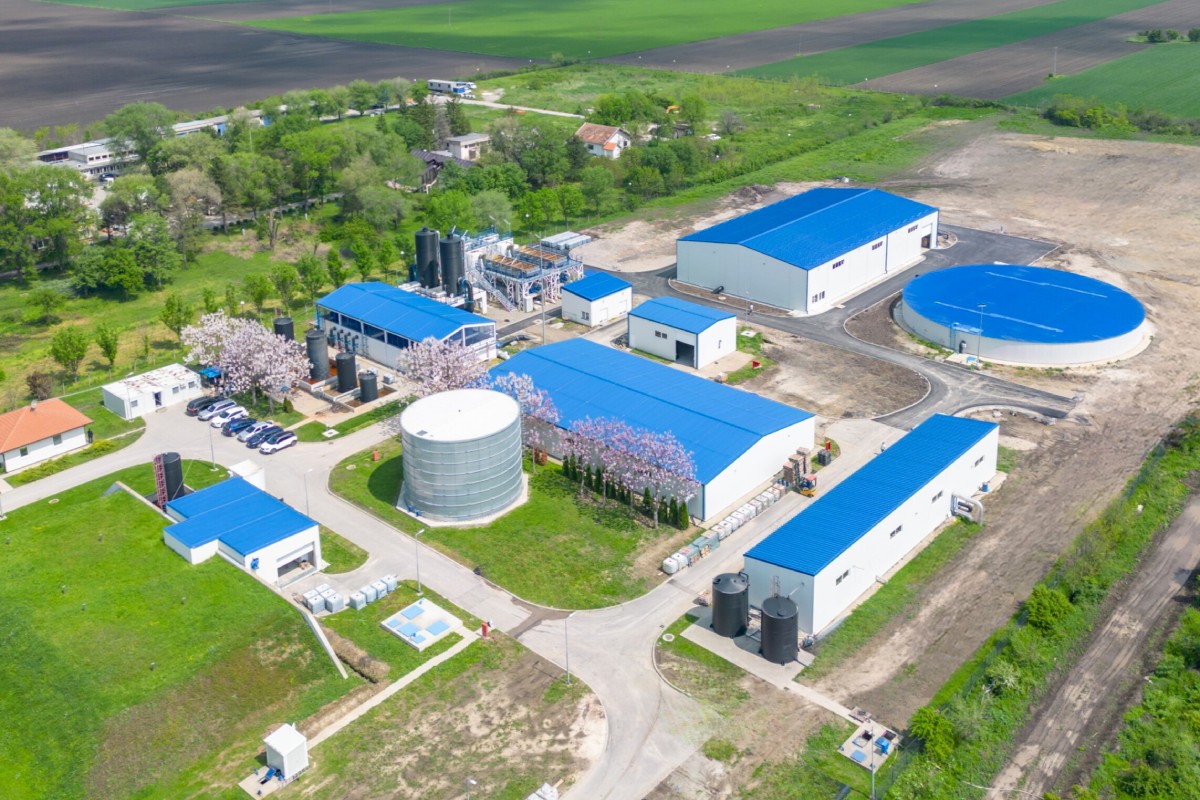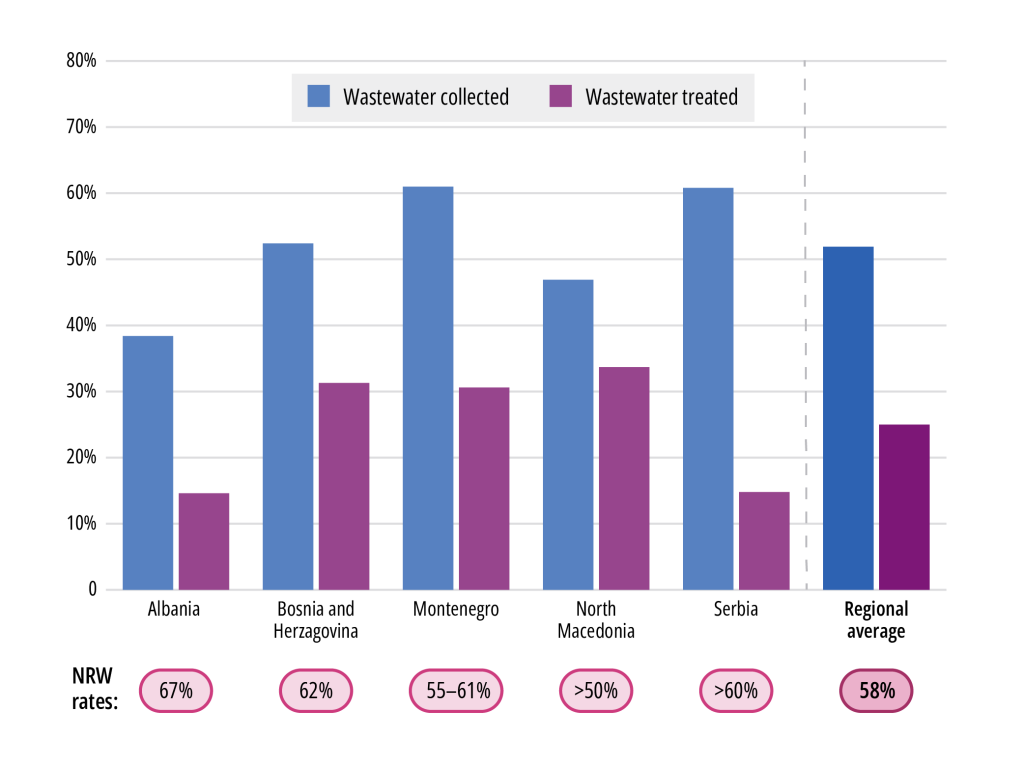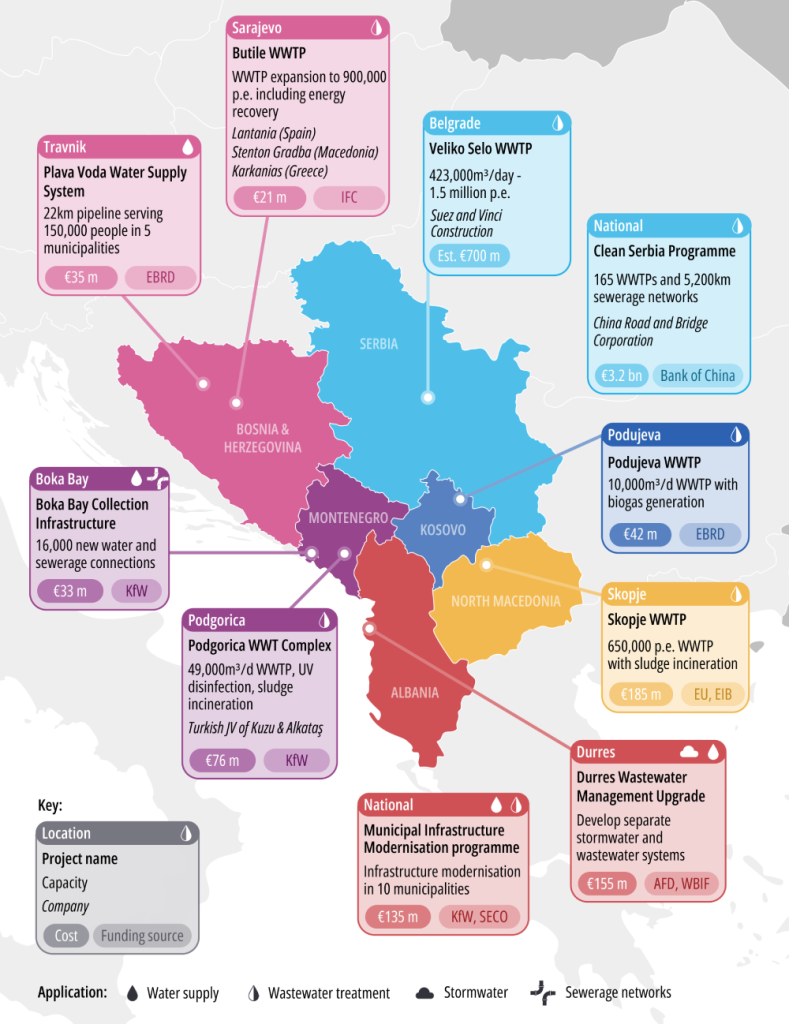
Metito Utilities featured in GWI: Driving Private Sector Participation in the Western Balkans
Metito Utilities featured in GWI: Driving Private Sector Participation in the Western Balkans
We are pleased to share a featured article from Global Water Intelligence (GWI), highlighting Metito Utilities’ pioneering role in advancing private sector participation in Serbia water and wastewater infrastructure.
In this article, Branislav Zec, Country Manager – Serbia, Metito Utilities, discusses the company’s long-term vision for sustainable water investments across emerging markets and its commitment to delivering resilient, impact-driven infrastructure solutions.
This article was originally published by Global Water Intelligence on 4 August 2025 under the title “Money pours into Western Balkans as EU accession talks accelerate.” It is shared here for informational purposes only. All rights and credits belong to the original author and publisher. Any opinions expressed are those of the original author and do not necessarily reflect the views of Metito Utilities.
Money pours into Western Balkans as EU accession talks accelerate
As Balkan states strive to level up their water infrastructure to EU standards, capacity constraints are becoming clearer. Demand for private sector operations – and private finance – is growing.
Published: 4 August 2025; Written by: Daniil Antonov
Rising political support for expanding EU membership is unlocking a wave of investment in water and wastewater systems in the Western Balkans. The latest EU budget (for the period 2028-34), released in July this year, shows a 37% increase in allocations for prospective member states across all sectors – a total investment of over €42 billion. Five of the nine countries on the list (Albania, Bosnia and Herzegovina, Montenegro, North Macedonia and Serbia) are in the Western Balkans.
“The enlargement to the Western Balkan countries is the most important geopolitical investment we are doing,” EU Council president Antonio Costa announced on a trip to the region this Spring. “This is the right moment, and it is up to us to complete this process as soon as possible.”
Aligning water regulation in the candidate countries with the EU framework is a key priority, highlighted in the European Commission’s new Water Resilience Strategy in June. Meanwhile, EU funds will be essential in bridging the infrastructure gap. The Commission pledged to push and create a new assessment of their water investment needs in 2026.
€2.3 billion has already been committed to water and wastewater projects by the development finance community under the Western Balkan Investment Framework. The World Bank estimates up to €7 billion per year will be needed to comply with EU regulation, compared to an estimated €4 billion/year spent across the region today. Aside from development finance lenders, the European Investment Bank (EIB) alone has invested close to €845 million in the region’s water sector to date in a bit to ensure all projects meet European regulations.
Filling the service level gap
The wastewater sector currently offers the top opportunities in the Western Balkans region as countries pursue alignment with EU regulations. Out of all the capital cities in the region, only Podgorica (Montenegro) has centralised wastewater treatment facilities. High non-revenue water rates also present opportunities for digitisation and network repair as utilities look to build financial sustainability.

Source: World Bank, UN SDG6 Data, GWI
Contractors from Western Europe, the Middle East and China have all been vying for the piece of the action. Serbia has proved particularly fertile ground historically for Chinese contractors, with China Road and Bridge Corporation (CBRC) pulling in €3 billion of Chinese state funding for 165 wastewater treatment plants in 2021, and China Machinery Engineering Corporation (SMEC) being offered the first phase of Belgrade’s central wastewater treatment project in 2020 – covering the construction of networks collecting the treatment plant’s influent. Despite the early mover advantage from the Chinese companies, French firms Suez and Vinci ultimately secured the main 423,000m3/d treatment facility, signing a memorandum of understanding to design, build and operate the plant in summer 2024 in a joint-venture with Belgrade Water and Sewerage company. Metito meanwhile has secured pioneering PPP projects on both the water and wastewater side in the city of Zrenjanin.
Elsewhere in the region, development finance has paved the way. German contractors WTE Wassertechnik and PWT have picked up DFI-backed wastewater contracts in Skopje (North Macedonia) and Himara (Albania), respectively, while a Turkish consortium recently won the contract to upgrade wastewater infrastructure in Montenegro’s capital Podgorica.
Selected water projects in the Western Balkans
EU efforts towards enlargement, financially backed by development banks, are working to reduce risk for water sector projects and build a foundation for the private sector to bridge the region’s infrastructure investment gap. As the Western Balkans move towards EU membership, early entrants will be on track to secure long-term opportunities in treatment and sludge plant buildout, network construction, and digitisation.

Source: Western Balkans Investment Framework, GWI
While Kosovo has been a recipient of some of the funding targeted at the region, it is not an official candidate for EU accession at present.
Meeting the challenges
To join the EU the Western Balkans will need to leverage the private sector to close the infrastructure gap in treatment and non-revenue water. Damien Sorrell, the European Investment Bank’s regional head for the Western Balkans, told GWI: “As the Western Balkans advances on its path towards EU accession, the water sector remains an area where regulatory alignment with the EU remains necessary.
“The region must accelerate investment in infrastructure, capacity building, and digitisation of utilities. The cost of modernising and expanding water systems runs into several billion euros – a financial burden which cannot be shouldered by the public sector alone. Public-private partnerships (PPPs) offer a solution, but regulatory complexity and low commercial returns often deter private investors.”
Serbia has become the region’s first mover in private sector participation for water with Metito Utilities having secured the country’s first PPP for the Zrenjanin WWTP. The project is being delivered under a 25-year design-build-finance-operate-maintain (DBFOM) contract. Branislav Zec, Serbia country manager for Metito Utilities, told GWI: “We saw a great deal of potential in Serbia and the region, and we believe PPPs are the right solution. There are investments in Serbia from EU grants, but when the grant finishes it’s challenging to find who is going to operate and maintain the facility. [Metito Utilities] is not only here to build and execute facilities but develop the project from the start and then offer a long-term service of 25 years.”
Since securing the Zrenjanin wastewater PPP, Metito Utilities has expanded its Serbian operations into water treatment and non-revenue water, bringing its total contract value in the country to €50 million to date. “We started with wastewater but then discovered that the city had a ban on [the use of] potable water [for drinking and cooking] since 2004. It was a complex project as first we had to remove methane, second removing a lot of organics because there is a lot of oil and natural gas. This May we reached potable water supply for the summer period. We are very proud of that.”
Zec noted Metito’s commitment to Serbia and the region’s water sector, saying that “You need an investor who is resilient. It’s not a couple of years project so you need to be committed to stay.”
The number of PPPs in the region has been limited to date owing to undeveloped regulatory environments, a lack of prior private sector participation, and fragmentation. However, project opportunities provided by development banks are serving to change sector structure in the region, paving the way for the private sector to play a greater role.
In Albania, German construction and engineering company PWT Wasser was contracted to build and operate a WWTP in Himara – the project was financed by KfW and driven by the growing tourism industry and EU directives. After seeing the benefits of a reliable private partner in training local personnel, the Himara utility requested PWT extend their operations period to at least two years, covering the tourism season. PWT project manager Endrit Mullalli told GWI that Himara was intended as a test case for private sector operation in Albania, with similar contracts potentially being rolled out nationally in a capacity building initiative.
In June 2025 Albanian Prime Minister Edi Rama also announced plans for a creation of a national water supply operator to oversee Albania’s existing 58 utilities, in a bid to attract international investment and address sector fragmentation.
A view from the ground
Ghislain Juvanon, COO of PWT, explained: “I think [the Western Balkans] is an exciting part of the world and it’s on our road map as a business to be focused there. When a municipality asks us to take over running the plant for the next couple of years, it suits our strategy very well. From there we can fund our local teams and expand.”
For PWT, strict procurement standards provided by development banks reduce risk, allowing the company to capitalise on the region’s buildout to meet EU directives and demand from the tourism industry. “In the Middle East, projects are driven by optimisation and reducing costs,” Juvanon said. “In the Balkans, the water sector is driven by European directives. Also, on the Adriatic coast tourism is another driver.”
Capacity building
In addition to project financing, development banks are also facilitating capacity building programmes to lay the foundation for future private sector opportunities.
The World Bank’s Utilities of the Future (UoF) programme, headed by Camilo Lombana, has worked to reform over 100 utilities in 40 countries, and in 2024 established a Center of Excellence in the Western Balkans to build momentum for sector reform. Lombana explained: “I think one thing that is going to be key to advance the sector in the near future is how [the region] manages to attract and engage private sector participation.
“The main [reason for a lack of private sector participation] is that the government or the decision-maker have not completely seen the benefits of bringing in the private sector. We have not seen a clear example of competitive participation in one of the countries where we can say ‘Look, this is an example we can showcase’. We’re missing that.”
UoF’s current cohort of 15 Western Balkan utilities covers over 1.6 million people, with the programme working to expose utilities to good practices that have worked in similar contexts. Lombana noted that this was the first step in creating reliable partners for the private sector.
A quick guide to the investment landscape
Albania
- Estimated €5 billion water sector investment need between 2019-2040 with tariffs set to increase by 75% by 2030 to boost bankability and attract private sector.
- Sector goals include increasing sewerage connection from 50.2% to 87%, rural water supply from 58% to 91%, and reducing 67% non-revenue water rate.
Bosnia and Herzegovina
- Sector fragmentation being addressed by draft state-level water law to introduce performance-based financing and requiring utilities create business plans for efficiency improvements and infrastructure modernisation.
Montenegro
- Montenegro estimates a €300 million shortfall needed to reach UWWTD compliance, including €131 million for 29 WWTPs and €212 million for expansion of sewerage networks.
- Wastewater collection rates stand at 38% in the North and 52% on the coast, with a goal of reaching 90% to meet EU directives.
North Macedonia
- UWWTD compliance costs estimated at €1.2 billion by 2041 with €100 million EIB funded facility currently accounts for 40% of WSS allocations.
- PPPs expected for sludge treatment.
Serbia
- 350 WWTPs needed for UWWTD compliance; 996,000m3/d currently untreated
- Key Projects: 1) Veliko Selo WWTP in Belgrade awarded to Suez. 2) Clean Serbia (CBRC and the Bank of China) €3 billion programme to 165 WWTPs and 5,200km of sewerage networks
- National Sludge Management Plan launched in 2023: Annual production to rise from 4,000 tonnes (2023) to 18,000-23,000 tonnes (2029) and 135,000 tonnes (2041). Authorities exploring technology and PPPs to handle growth from WWTP buildout.

